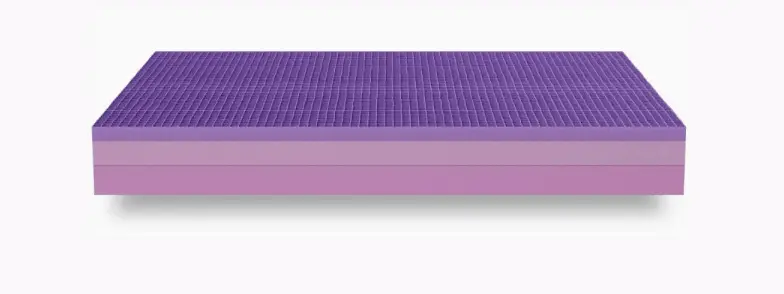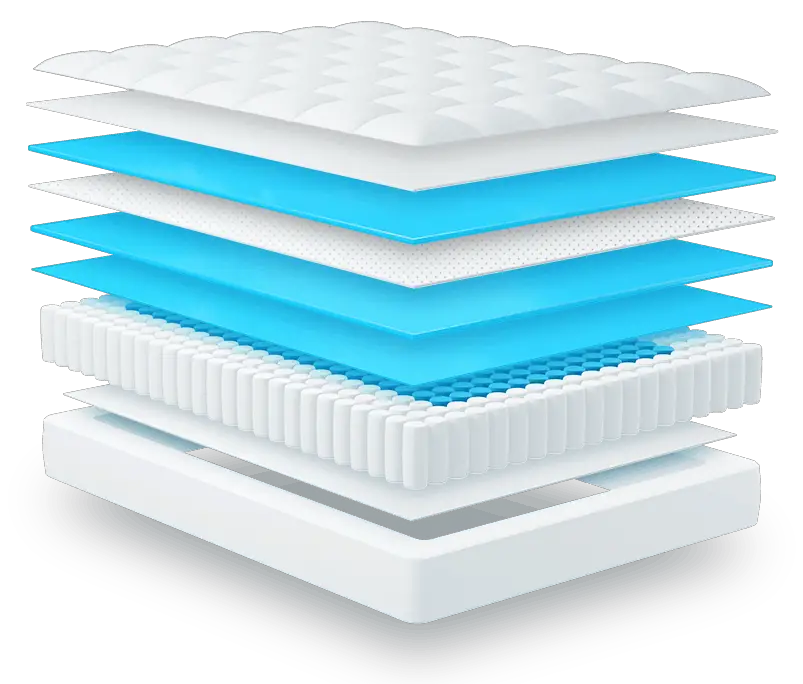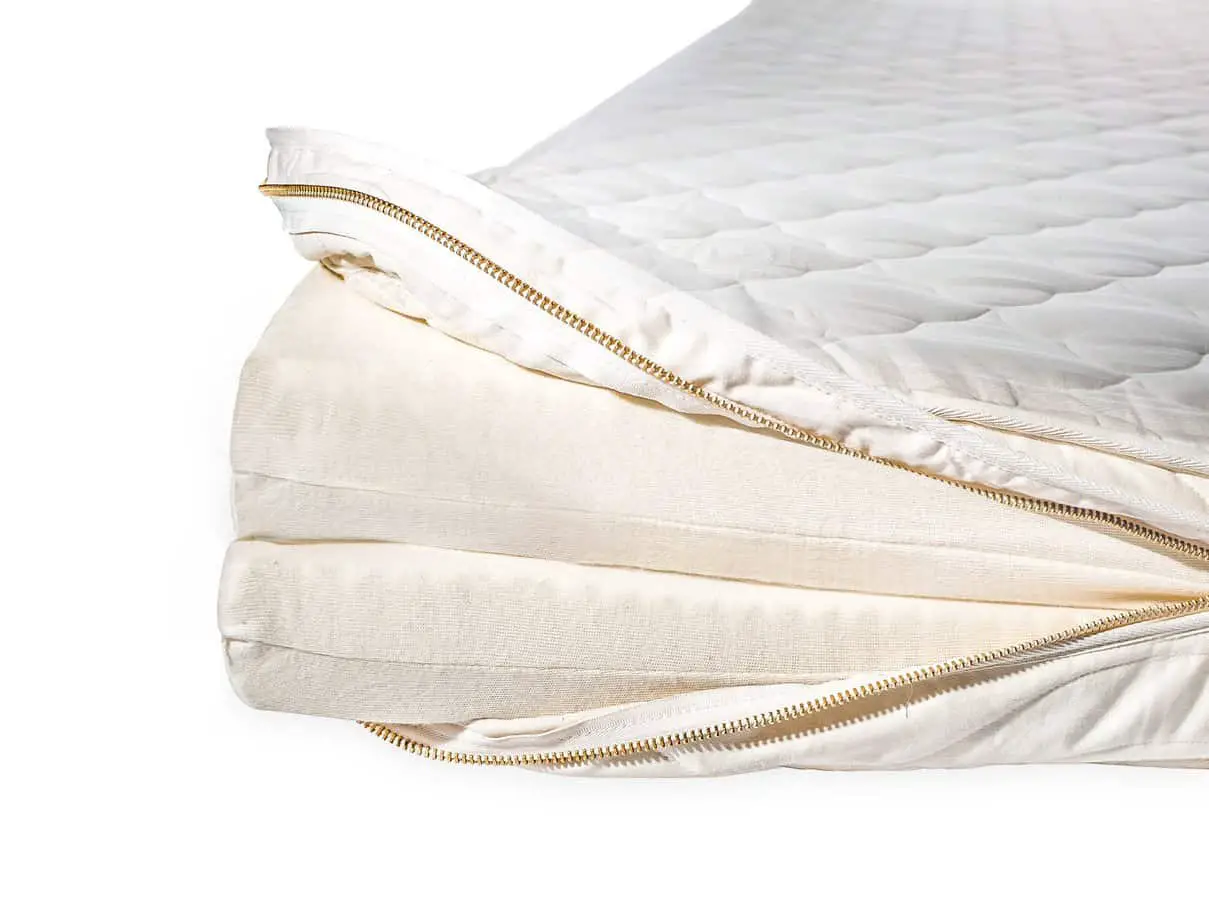If you do a quick online mattress comparison looking for a good mattress, you’ll find that most of them have roughly the same number of layers.
Foam mattresses usually have 3 layers while innerspring ones can have up to 4 or 5 layers.
These layers fall into three zones: the comfort layer which is soft for pressure-relief, the transition/support layer for back and compression support and the base layer for overall support and durability.
You'll also come across several mattresses that fall outside this 3-5 layer range.
On the lower end of the scale is the 7” Metta Bed, a mid-range organic mattress with just two layers of foam.
On the thicker end of the scale is DreamCloud, a 15” hybrid mattress with a whopping 8 layers of foam and coils.
As expected, the DreamCloud is more expensive with the Queen going for around $1,600 while the Metta Bed costs $1,300 for a queen (which is cheap for a 100% organic mattress).
But other than price, does the number of layers in a mattress affect other important factors like comfort, level of support and durability?
The Ideal Number of Layers

The short answer is that beyond a certain number of layers (around 3-4), having extra layers is not really necessary.
A 3-layer mattress can deliver as much support and luxury comfort as an 8-layer mattress.
Most mattresses with such insane number of layers usually do it just to stand out in what has become a crowded and highly competitive industry. In other words, it’s a marketing gimmick.
3 or 4 layers is the sweet spot. A few will also have 5 layers which is also within the reasonable range.
Getting a mattress with more than 4 or 5 layers is not bad per se. It’s just that you are likely paying extra for nothing.
There is also the risk that the mattress will have too much heat retention because of all the layers (this is especially the case if they have been glued together). Another risk is that the many layers might start shifting around with time.
On the flip side, I also wouldn’t recommend getting a mattress with less than 3 layers. Some will be great especially if they are thick enough (at least 10″) but most tend to be thinner and offer less support and durability.
Mattresses that consist of just one block of foam are also not the best.
Having a distinct comfort, support and base section provides a better and more fine-tuned sleeping experience. The mattress responds better to your weight and sleeping position.
The Importance of Comfort and Support Zones

When you lie on well-designed mattress, you’ll feel the soft contouring top layer envelop your curves and joints. It instantly relieves pressure points around your shoulders, hips and back.
That’s the comfort zone doing its work.
Then as you settle into the mattress, the support zone comes into play. It keeps you from sinking in too much and distributes your weight evenly across the mattress.
This is especially important for back support and spinal alignment.
Innerspring mattresses also use this zone to provide additional contouring via individually wrapped coils.
The base/foundational zone provides further support to keep you from sinking in too far (especially if you are big-bodied) and keeps the mattress in shape for years.
Bottom Line

Yes, it is important to look at the number of layers in a mattress when shopping. But more is not always better especially if the price is too high.
As long as the mattress is within the 3-5 layer range, then the precise number of layers is not that important.
Instead, look at how the layers have been arranged. Is there a distinct comfort, support and foundational zone? Does it comes with an edge support system (important for couples)?
The thickness of the individual zones also matters. For the best sleeping experience, the comfort and support zones should each be at least 2” thick while the base should be 4″-7″.
As for the overall thickness of the mattress, anything from 10” and up is good.
But thicker doesn’t always mean better. A thickness higher than 13” is usually just a marketing gimmick; it doesn’t deliver any extra comfort or support.
Affiliate Disclosure
Affiliate Disclosure: I may earn a small commission (at no cost to you) if you purchase a mattress after clicking a referral link or using a coupon code on this site. That said, all content and opinions on this site are my own and are NOT affected by these payments.
This site participates in the Amazon Services LLC Associates Program, an affiliate advertising program designed to provide a means for sites to earn advertising fees by advertising and linking to Amazon.com.
*Amazon and the Amazon logo are trademarks of Amazon.com, Inc, or its affiliates.

